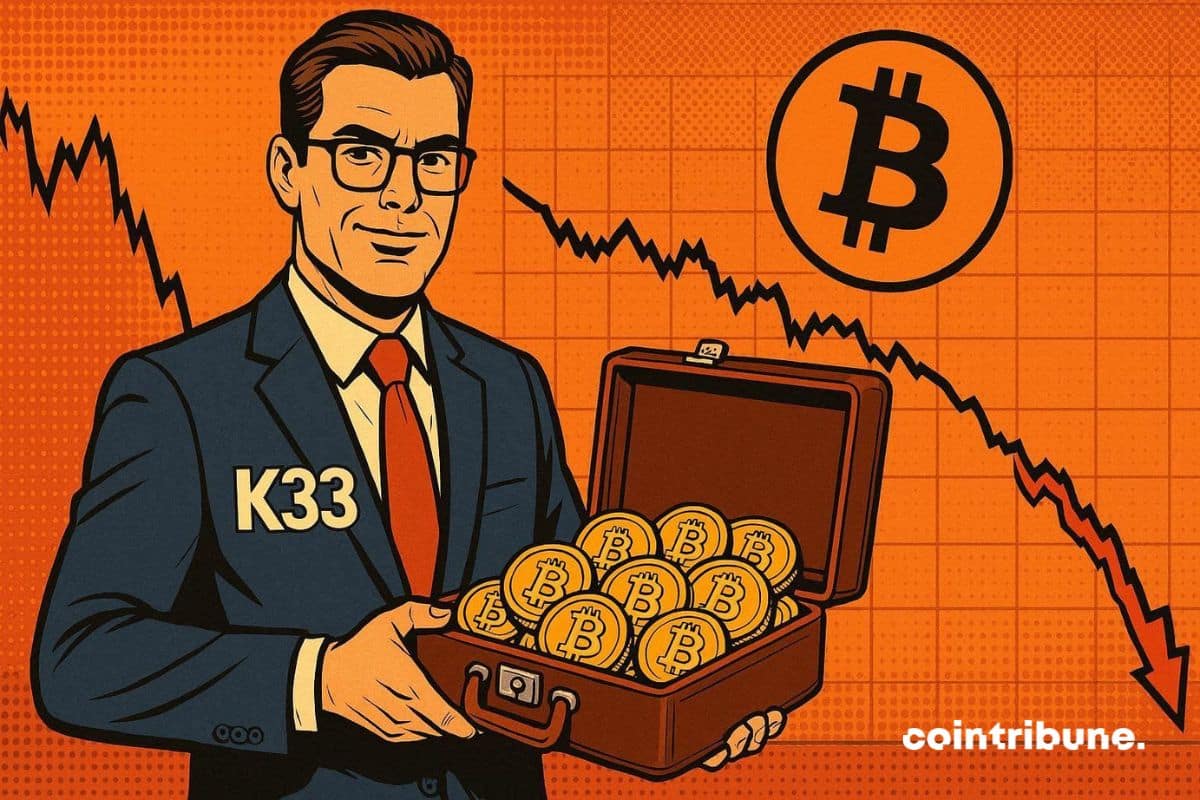JPMorgan bets on high gains with its new Bitcoin product
JPMorgan Chase has just filed an application with the SEC for an innovative financial product that could radically transform the way investors are exposed to Bitcoin. The stake? Potentially massive returns by 2028. But at what cost?

In Brief
- JPMorgan Chase has filed with the SEC to launch a leveraged structured product based on bitcoin.
- Investors could multiply their gains by 1.5 if bitcoin soars by 2028.
- The product is backed by BlackRock’s iShares Bitcoin Trust, the largest Bitcoin ETF in the world with $69 billion in assets.
- An early redemption clause is planned for the end of 2026 if certain price thresholds are met.
A sophisticated mechanism with a double edge
JPMorgan submitted on Monday, November 24, to the Securities and Exchange Commission a filing to create a structured note that would allow investors to bet on the evolution of the bitcoin price .
The principle is based on bonds with a nominal value of $1,000 each, backed by BlackRock’s iShares Bitcoin Trust, the largest Bitcoin ETF in the world with $69 billion in assets under management.
The mechanism involves a key maturity: December 2026. If the Bitcoin ETF price reaches or exceeds the set threshold at that date, JPMorgan will proceed with an early redemption with a minimum payment of $160 per bond. A rather favorable scenario for cautious investors.
However, the story gets really interesting if the price stays below this threshold. The bonds then continue until 2028, offering holders the possibility to multiply their gains by 1.5 on any bitcoin increase.
JPMorgan describes this potential yield as “unlimited,” a bold formulation reflecting the scale of possible profits if crypto experiences a meteoric rise.
The downside? Losses just as amplified. A 40% or more drop in bitcoin would cause considerable damage to the initial investment.
As James Seyffart, ETF analyst at Bloomberg, points out, this type of structured product exists on “virtually all conceivable assets,” but bitcoin’s historical volatility adds an extra dimension of risk.
JPMorgan and cryptos, a relationship that evolves
This launch marks a symbolic milestone for JPMorgan Chase. Jamie Dimon, its CEO, long stood out as one of Bitcoin’s fiercest critics, not hesitating to publicly call it a scam.
Yet, he has always praised the merits of blockchain, the revolutionary technology underpinning the entire crypto ecosystem.
The facts speak for themselves: the bank recently launched a digital dollar deposit token on Coinbase’s Base network.
This initiative confirms a trend observable for several years. JPMorgan can no longer ignore the growing demand from its institutional clients for crypto-related products.
The timing of this announcement is also revealing. While Bitcoin spot ETFs were approved by the SEC in early 2024, JPMorgan is clearly aiming to position itself in this expanding market.
The structured product offered is part of a broader strategy aimed at capturing a piece of the crypto pie while maintaining a certain prudent distance.
Ignacio Aguirre Franco, marketing director at Bitget, sees in this initiative “a revolutionary catalyst to democratize crypto exposure.”
This type of regulated instrument issued by a bank marks a major turning point in how traditional finance approaches digital assets, accelerating institutional adoption and attracting new capital to the market.
JPMorgan’s structured product perfectly embodies the ambivalence of the traditional financial sector towards Bitcoin: attraction to potential profits, distrust of volatility.
If the SEC gives the green light, this new investment vehicle will offer the boldest the opportunity to bet big on the future of BTC . However, as always with leverage, caution remains necessary: “unlimited” returns have the corollary of potentially devastating losses.
Disclaimer: The content of this article solely reflects the author's opinion and does not represent the platform in any capacity. This article is not intended to serve as a reference for making investment decisions.
You may also like
Bitcoin: A Relative Buying Opportunity Despite the Panic, According to k33

The "Bankruptcy" of Metcalfe's Law: Why Are Cryptocurrencies Overvalued?
Currently, the pricing of crypto assets is largely based on network effects that have yet to materialize, with valuations clearly outpacing actual usage, retention, and fee capture capabilities.

Need Funding, Need Users, Need Retention: A Growth Guide for Crypto Projects in 2026
When content becomes saturated, incentives become more expensive, and channels become fragmented, where lies the key to growth?

EOS faces renewed turmoil as the community accuses the Foundation of running away with the funds
The collapse of Vaulta is not only a tragedy for EOS, but also a reflection of the shattered ideals of Web3.

